Choosing to adopt a vegan diet is a lifestyle decision that may have a good effect on both the environment and your health. Whether you’re driven by health, environmental, or ethical considerations, making the switch to a vegan diet may be satisfying and doable.
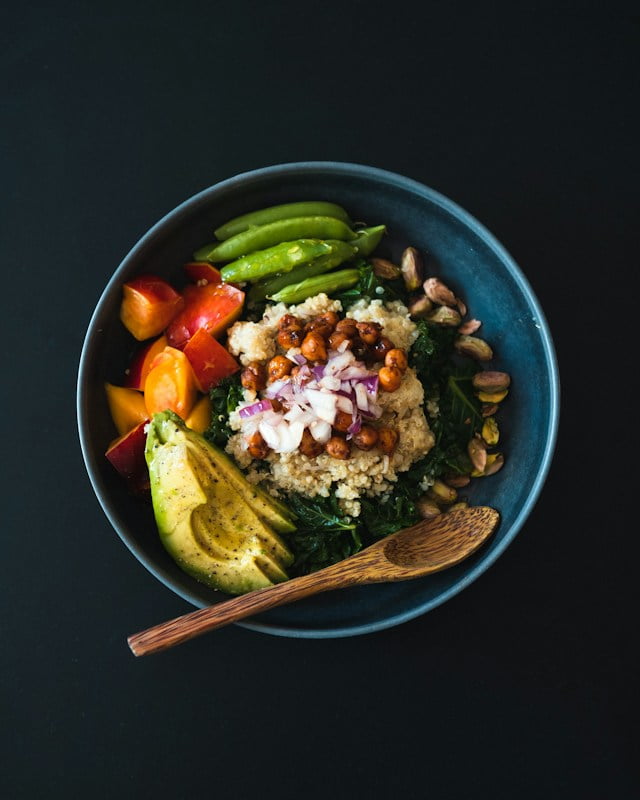
All animal products—meat, dairy, eggs, and even honey—are off-limits to vegans. Rather, it emphasises foods that are made from plants, such as fruits, vegetables, grains, legumes, nuts, and seeds. To make sure your body is receiving all the vital nutrients it needs, it’s important to eat a range of these foods.
Advantages of a Vegan Diet for Health:
Heart Conditions:
Reduced cholesterol: Eating a vegan diet can help decrease blood cholesterol levels since it often contains less cholesterol and saturated fat.
Lower risk of heart disease: Research indicates that a plant-based diet may have a protective effect on blood pressure, cholesterol, and inflammation, which may help reduce the risk of heart disease.
Weight management: Loss of weight: Since plant-based diets are often lower in calories and fat, some people may lose weight when following a vegan diet.
Better weight control and an enhanced metabolism can result from a vegan diet.
Blood Sugar Control:
Increased Sensitivity to Insulin: Plant-based diets have the potential to increase sensitivity to insulin, which may lower the risk of type 2 diabetes.
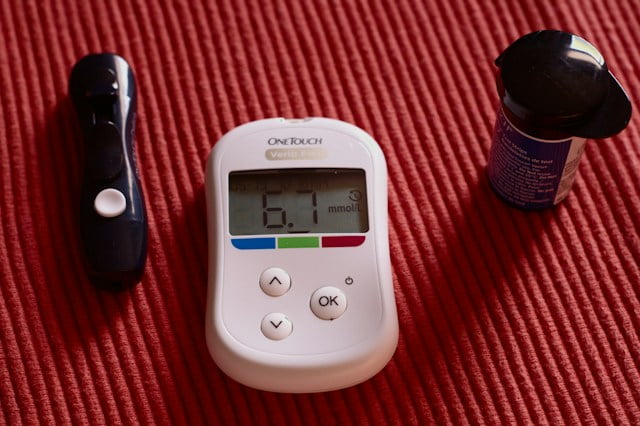
Reduced blood sugar: A vegan diet may help with better blood sugar regulation, according to certain research.
Increased Intake of Fibre: A vegan diet is often high in fibre, which helps to maintain regular bowel movements, improve digestive health, and lower the risk of colorectal cancer.
Modified gut microbiota: The makeup of the gut microbiota affects digestive health generally, and plant-based diets may have a favourable impact on this composition.
Decreased Cancer Risk: A vegan diet may be linked to a lower risk of developing several malignancies, including colorectal and prostate cancer, according to some research.
Foods high in antioxidants: Plant-based diets frequently include high levels of antioxidants, which may help shield cells from oxidative damage that can cause cancer.
Enhanced Kidney Function: Decreased likelihood of kidney issues Diets high in plants may reduce the incidence of kidney stones and other kidney-related problems.
Reduction of Blood Pressure: Increased blood pressure: The focus of a vegan diet on plant-based foods, which are often lower in salt, may help decrease blood pressure.
Joint Health: Decreased Inflammation: Diets high in plants may have anti-inflammatory properties that may help people with arthritis or other inflammatory diseases.
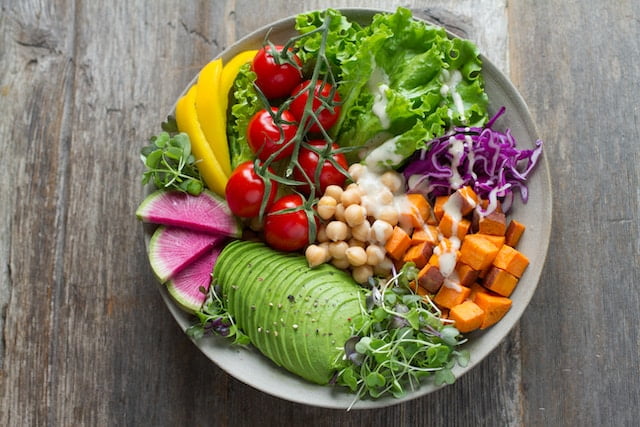
Advice for a Smooth Transition to Veganism:
Proceed with Caution: A gradual transition can help to handle the process better. Increase the amount of plant-based foods in your diet at first, then progressively cut out animal products.
Investigate Vegan Substitutes: There are many plant-based options available to replace dairy, meat, and other animal products. Try out a variety of items and brands to see what you like.
Emphasis on entire Foods: Include entire, plant-based foods such as fruits, vegetables, grains, legumes, nuts, and seeds in the majority of your meals. These meals may be tasty and fulfilling while also offering vital nutrients.
Arrange Your Meals: Having a plan will enable you to choose healthier foods. Make sure to incorporate a range of nutrients in your weekly food plan to satisfy your body’s requirements.
Locate Vegan dishes: Adding some excitement to the switch might come from finding new dishes. Vegan recipes abound on the internet, with options to suit a wide range of palates.
Read Ingredient Labels: Keep an eye out for any hidden substances originating from animals in some items. Learn the names of common non-vegan ingredients.
Supplement Carefully: Although a carefully thought-out vegan diet can provide enough nutrients, you may need to take supplements of vitamin B12, vitamin D, and omega-3 fatty acids.
Share Your Needs: Let others know in advance what you eat when you’re going to a restaurant or a social gathering. A lot of eateries are accommodating, which helps to prevent embarrassing situations.
Be Kind to Yourself: Recognise that being vegan is a journey and that making errors is to be expected. Treat yourself well and acknowledge your accomplishments.
Foods That Are Healthful for Vegans Consume
Fruits: They offer vital nutrients, vitamins, and antioxidants. Berries, apples, oranges, bananas, and mangoes are a few examples.
Vegetables: High in vitamins, minerals, and fibre. Colourful veggies, cruciferous vegetables like broccoli and cauliflower, and dark leafy greens like spinach and kale are all great options.
Whole Grains: Rich in vitamins, minerals, and fibre. Quinoa, brown rice, oats, barley, and whole wheat are a few examples.
Legumes: Rich in fibre, protein, and other nutrients. Add legumes (lentils, chickpeas, and black beans), peas, and soy products (tempeh, tofu).
Nuts and Seeds: Offer important minerals, protein, and good fats. Popular options include almonds, walnuts, chia seeds, flaxseeds, and sunflower seeds.
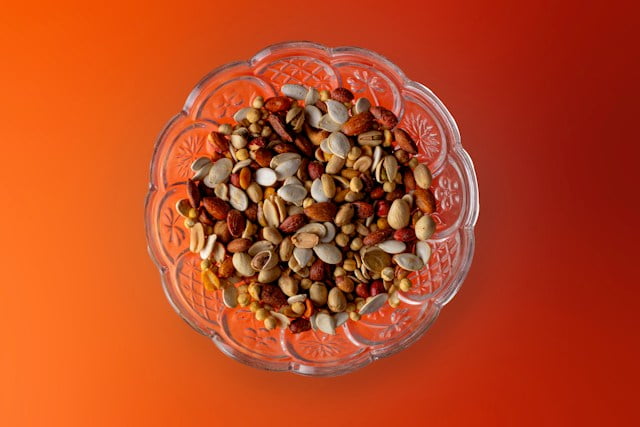
Plant-Based Proteins: Add high-protein substitutes such as tempeh, seitan, and plant-based protein powders (hemp, pea, etc.).
Good Sources of Monounsaturated lipids: Avocados, and olive oils, and their lipids are rich in monounsaturated fats.
Plant-Based Milk and Yoghurt: Dairy-free yoghurts and fortified versions of almond, soy, coconut, and oat milk can supply calcium and vitamin D.
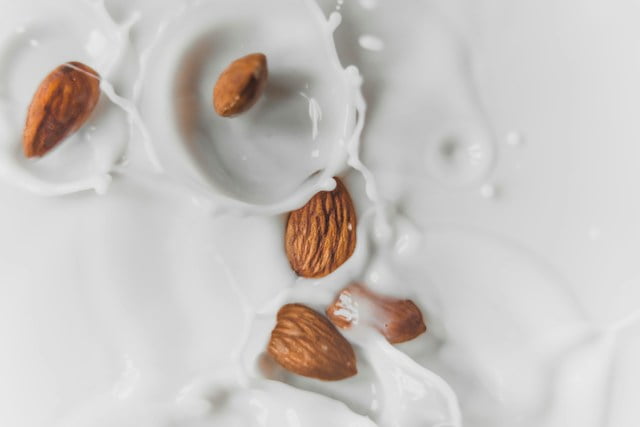
Foods fortified with nutrients: Plant milk fortified with calcium and vitamin D, nutritional yeast (B12), and cereals are some examples of foods that might help vegan diets.
Spices and herbs: Boost taste without gaining more calories. They could be advantageous to your health as well.
Summary
Adopting a vegan diet is a wise decision that will improve animal welfare, the environment, and your health. Making the switch to a plant-based diet may be easy and pleasurable if you know the fundamentals of the diet, appreciate its health benefits, and adhere to some basic guidelines. Recall that every little change matters, and adopting a vegan diet is a step in the right direction towards a healthier and more sustainable future.
Seeking advice from a dietician is essential before making any big changes to your lifestyle or food.
You may also like:
The Shocking Truth About Sugar: How It’s Wrecking Your Health
Immune System SOS: Identifying the Threats That Make You Vulnerable
Ketogenic Diet for Weight Loss: Proven Benefits Backed by Science

